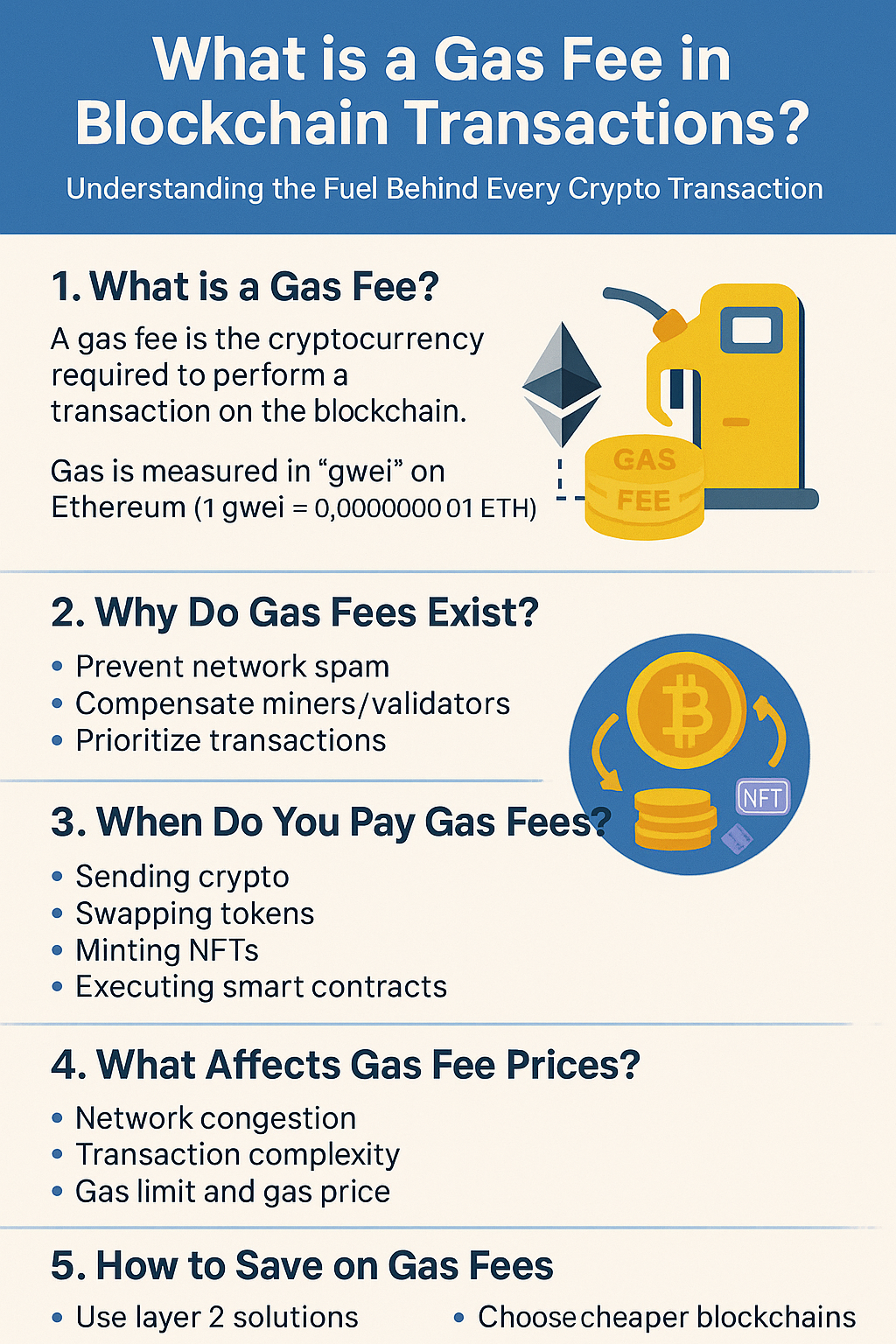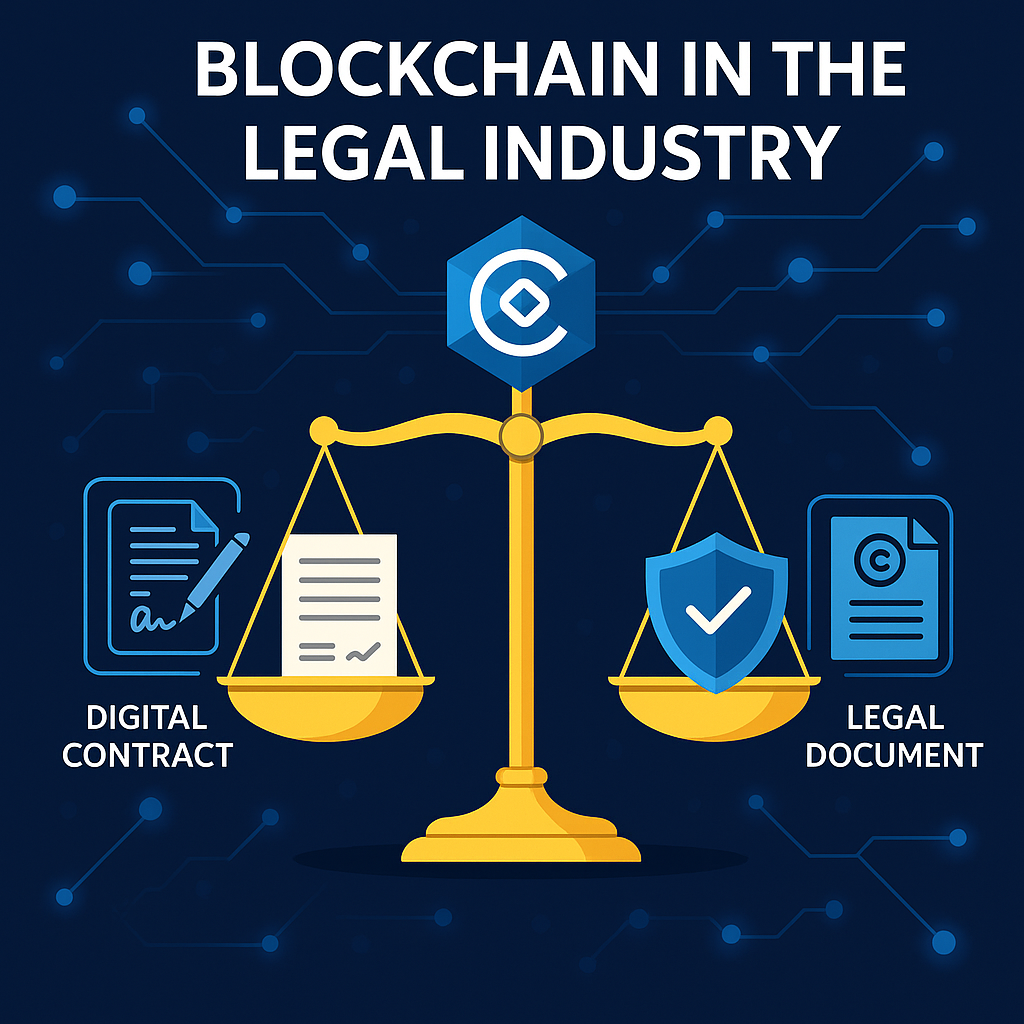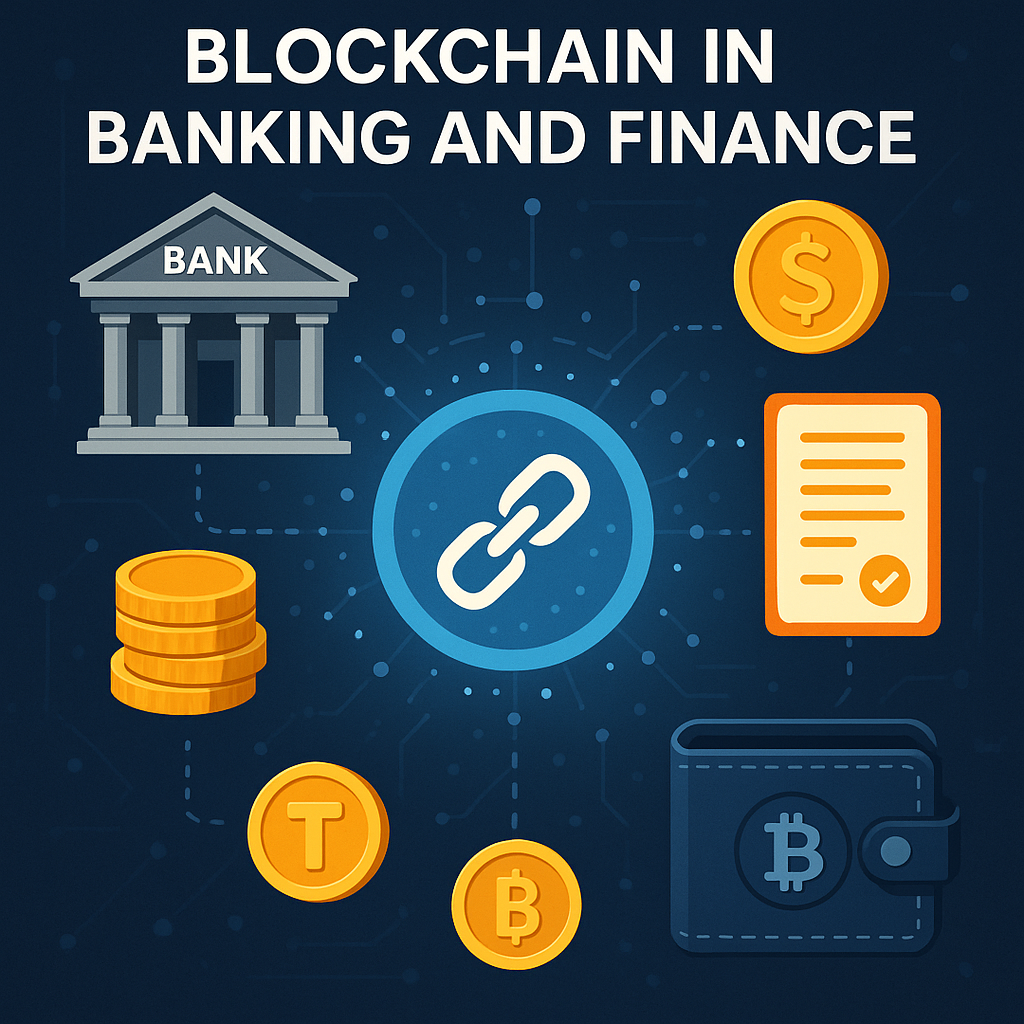What is a Gas Fee in Blockchain Transactions?Understanding the Fuel Behind Every Crypto Transaction
When using blockchain platforms like Ethereum or BNB Chain, you may notice a fee attached to each transaction. This fee is called “gas.” But what exactly is a gas fee, and why does it exist?
Let’s break it down simply.
1. What is a Gas Fee?
A gas fee is the amount of cryptocurrency you pay to process a transaction or run a smart contract on the blockchain. Think of it like fuel — it powers the computation required by the network.
Gas is measured in “gwei” on Ethereum, where 1 gwei = 0.000000001 ETH.
2. Why Do Gas Fees Exist?
Gas fees:
- Prevent network spam
- Compensate miners/validators for computing power
- Prioritize transactions (higher fees = faster confirmation)
In proof-of-stake networks like Ethereum 2.0, fees go to validators who secure the network.
3. When Do You Pay Gas Fees?
You pay gas when you:
- Send crypto to another wallet
- Swap tokens on a DEX (e.g., Uniswap)
- Mint or buy NFTs
- Interact with DeFi protocols or smart contracts
4. What Affects Gas Fee Prices?
Gas fees vary depending on:
- Network congestion: More users = higher fees
- Complexity of the transaction: Simple transfers cost less than running smart contracts
- Gas limit and gas price: Users can adjust how much they’re willing to pay
5. How to Save on Gas Fees
- Use off-peak hours (early morning or late night)
- Choose Layer 2 solutions (e.g., Arbitrum, Optimism)
- Use cheaper blockchains (e.g., Polygon, Solana)
- Batch transactions if possible
Conclusion
Gas fees are a crucial part of blockchain functionality — they keep the network secure, efficient, and fair. Understanding how they work helps you make smarter crypto decisions and avoid overpaying during peak times.
Need a Break from Crypto Fees?
Unwind with the Flutter Bees
- Tap your stress away with the Clicker Game
- Defend your hive in the Bee Hive Defense Game
- Watching helps boost your points and complete challenges






Post Comment